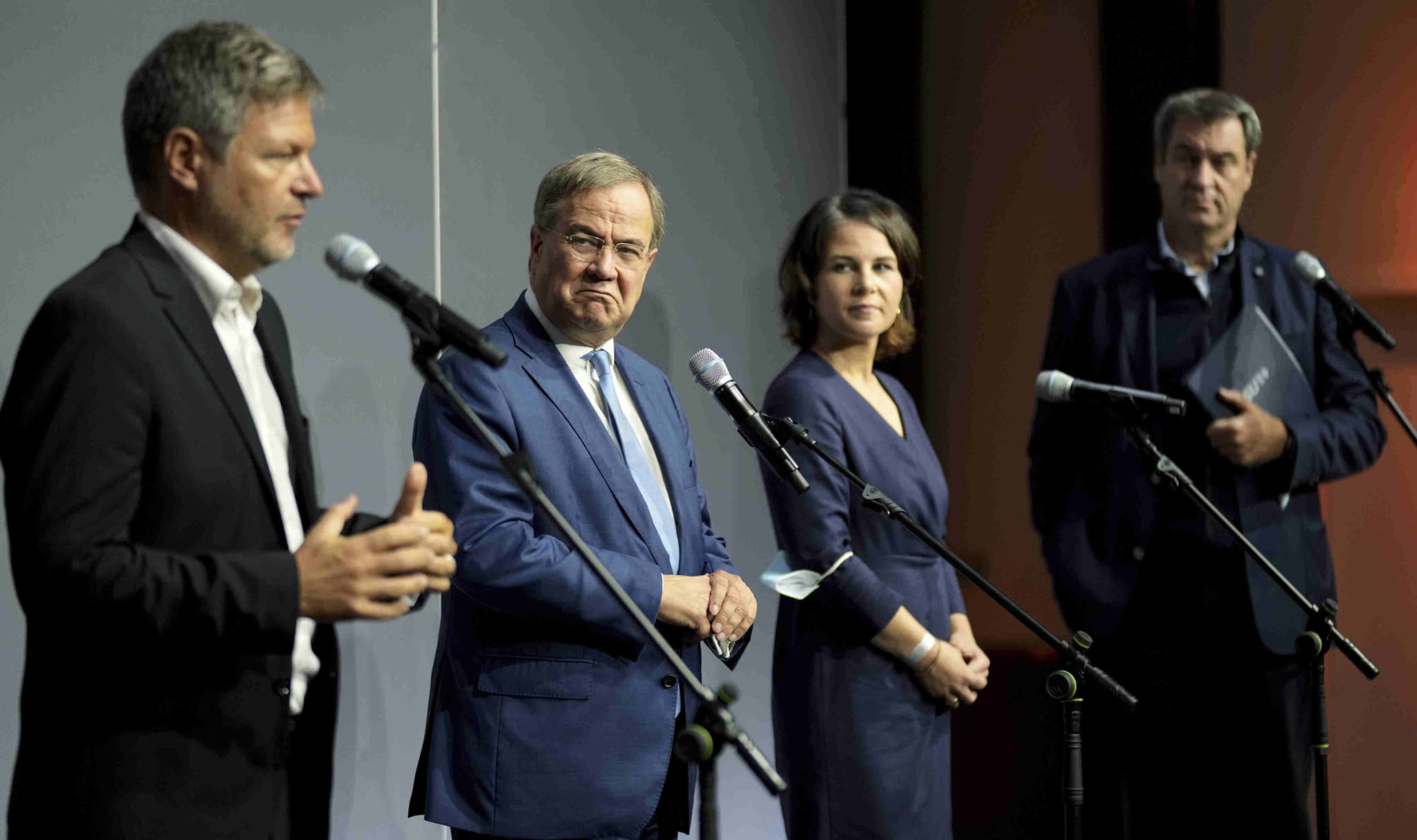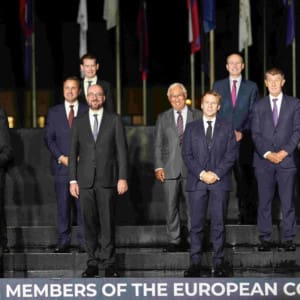We have not won the German parliamentary elections, but we still have the opportunity to form a governing coalition that could govern Germany, announced the chancellor candidate of the CDU/CSU, Armin Laschet, on Tuesday after talks with the Greens.
Co-Chair of the Green Party, Robert Habeck, said that together with the Free Democratic Party (FDP), he wanted to evaluate negotiations with the CDU/CSU.
The September elections in Germany were won by the Social Democracy (SPD) of Chancellor candidate Olaf Scholz. However, both Scholz and Laschet cannot form a government without the Greens and the FDP, and the continuation of the current grand coalition of CDU/CSU and SPD does not seem likely.
“We see some options how to form a coalition, and one of them is Jamaica,” Laschet said, using an expression based on the colors of the Jamaican flag that matches the party colors of the conservatives (black), the Greens (green), and the liberals (yellow).
“I don’t think the contradictions are insurmountable,” he said after the meeting.
Bavarian Prime Minister Markus Söder, who is also chairman of the Christian Social Union (CSU), also spoke about the constructive conversation the parties had. The Bavarian CSU forms a conservative union with the Christian Democratic Union (CDU) of President Laschet at the federal level.
Common positions identified
Laschet said the topic of the meeting was identifying common positions, finding bridges over inconsistencies, and assessing the stability of common program pillars.
“We came closest in the topic of climate protection,” he said. He also noted that the CDU is interested in continuing negotiations with the Greens and the FDP.
Annalena Baerbock, who led the Greens to the election as a chancellor candidate, said that the possible formation of a governing coalition of three political entities required seriousness, which the Greens are well aware of.
Habeck, who co-heads the Green Party with Baerbock, had the same opinion.
“We have measured possible program intersections,” Habeck said, adding that negotiations must now be evaluated.
“And we’ll take two days to do that,” he added.
The elections in Germany took place on Sept. 26, and the SPD narrowly won with 25.7 percent of the vote, followed by the CDU/CSU with 24.1 percent of the vote. Analysts expect the government to take many weeks, even months, to form, so incumbent Chancellor Angela Merkel could lead the country until Christmas. Merkel is leaving politics after 16 years in the chancellery.
Shortly after the election, the Greens negotiated with the economic liberals of the FDP to clarify the program’s priorities. The role of these two parties is crucial, as their support will lead Scholz or Laschet to the chancellery.
Scholz met with the FDP and the Greens last week.





